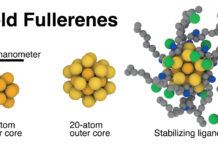
NYC Tries Plastic Roads
The Big Apple is in the middle of a fast-track trial using plastic waste mixed with asphalt to lay down city streets.
NYC’s Department of Transportation is working with British waste plastic road firm MacRebur on two streets in the borough of Staten Island, on Rice Avenue and Royal Oak Road, to measure how the plastic-asphalt roads hold up.
The company, which has worked on roads around the world, says it has diverted the equivalent weight of 214,000 single-use plastic bottles from landfills and says the surfaces have saved 7,300 kilograms of carbon dioxide.
Those benefits aside, the plastic roads will have to pass muster with Rutgers University in New Jersey. MacRebur said a team from Rutgers, which it called one of the leading U.S. universities in asphalt research, will test and monitor, with results expected by the end of the year.
NYC DOT Commissioner Ydanis Rodriguez said in the announcement that he wanted to see how the road mix held up in the city’s weather.
“Using recycled plastic waste has the potential to solve our growing plastic waste problem and improve the quality of our streets by cutting carbon emissions and reducing potholes,” he said. “We are excited to partner with MacRebur on this promising pilot and look forward to monitoring how its asphalt mix performs in New York City weather.”

NYC Tries Plastic Roads: As the first round of negotiations for the global plastic treaty are getting underway in Uruguay this month, a new report from the United Nations urges those at the talks not to forget the people who try to earn a living recycling plastic on the margins.
The November report, “Leaving No One Behind,” from UN Habitat estimates that 2 billion people around the world have no access to organized waste management, and it urges a special focus on the millions globally who try to earn a living gathering recyclable materials in those conditions.
If the treaty talks ultimately lead to a much different situation for how plastics are used and to better waste management globally, the report urges a “just transition” for those informal workers laboring in recycling.
UN Habitat’s report noted that the UN Environment Assembly meeting in March — where the plastic treaty talks were launched — was the first time that the contributions of people in the informal waste and recycling sector, or IWRS, were explicitly recognized at that level.
As an example of what to do, it pointed to Penang, Malaysia, where the city gave photo identity cards to informal collection workers, or waste pickers as the report calls them, so they could access health care.
But it said the treaty has the chance to do much more.
“The ongoing discussions on an internationally binding instrument on plastic pollution provide a unique opportunity to improve the workers’ livelihoods in the IWRS,” said Maimunah Mohd Sharif, head of the UN Habitat and former mayor of Penang, in the report.
The document recommended working groups of IWRS workers and governments to discuss solutions, as well as calling out the worst practices like child labor, open burning of wastes and lack of personal protective equipment.
The report also called for stronger financial mechanisms, like a globally coordinated EPR fee or monies from a global environment fund, to provide resources to the informal workers, although the report noted that attempts to include IWRS workers in EPR plans in some countries have had challenges.
The UN report also said that given the poor state of waste collection in much of the world, it estimates that without IWRS workers, recycling would be in much worse shape. In some countries, they are responsible for up to 90 percent of plastics recycling, the UN said.
“Their work not only surfaces reusable materials but also positively contributes to public health, creates cleaner cities and saves local government resources,” the report said.

NYC Tries Plastic Roads: We spend most of our time at Plastics News writing about the business side of the industry, but it’s also good to recognize the contributions that come from academia.
The University of Massachusetts Lowell recently named Ramaswamy Nagarajan, who researches innovative materials, as its 2022 Distinguished University Professor, the highest award the school gives to a faculty member.
Nagarajan, who joined the school in 2006 after getting his master’s and doctoral degrees in plastics engineering from UMass Lowell, holds 20 patents and has been awarded 77 research grants totaling $22 million.
His work ranges from military applications to more sustainable materials — he co-directs the school’s Center for Advanced Materials and partners with its Toxics Use Reduction Institute.
The school said he’s helped to develop environmentally friendly flame retardants, solar-powered plastics, inks that conduct electricity, flexible electronics and “smart” clothing.
And, it’s not his first teaching award. In 2011, the university’s Graduate Student Association honored him with its Faculty Member of the Year award.
NYC Tries Plastic Roads: Original Article
On-demand room-temperature single photon array—a quantum communication breakthrough










